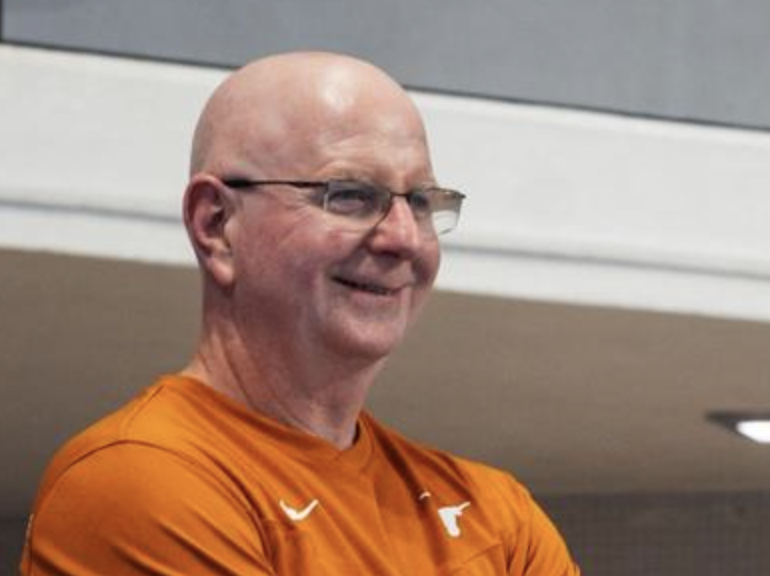University of Texas athletics director Chris Del Conte, who is the steward of one of the most powerful brands in college football, has been a central figure in the complete re-envisioning of collegiate athletics over the last few years. That has meant giving a lot of interviews about what the University of Texas, and college athletics as a whole, look like now and into the future.
The vast majority of those conversations have been centered around football, the elephant in any NCAA room, but in a recent interview with Austin, Texas’ ABC affiliated KVUE, the shift focused to the school’s new head swimming coach Bob Bowman.
The interview, in part:
How do I harness Texas? My job is to go harness what we have. When Bob Bowman took Arizona State to win a national championship on that Friday, I said, ‘Bob I’m going to talk to you,’ and he goes, ‘Hey, I’ll talk to you on Monday. Let me go in win a national championship. I was like yeah baby, but that just tells you what [former Longhorns Swimming and Diving HC] Eddie [Reese] built – an incredible swim program. We feel we’re the very best swim program in the country. It’s been established. Eddie won 15 national championships. Bob just won his first at Arizona State and he says, ‘I want that job.’ The resources, the facilities we have, the recruiting base that we have, and swimming’s really important. He chose to come. [Baseball HC] Jim [Schlossnagle] I worked with at TCU for 10 years. I knew him. But Texas has been to Omaha 38 times, won six national championships. There is only one Texas.
Full Interview:
Del Conte’s point was that Bowman, who has a personal brand about as high up the mountain as any swim coach could hope for in America, won a national championship *somewhere else*, and still decided to leave that program for the University of Texas.
That was, surely, in part because his salary nearly-doubled at the University of Texas. But it also points to how-uniquely situated schools like Texas are to navigate the new restrictions, limitations, and opportunities in the post-House world. Not every school will be able to afford big collectives to support the recruiting activities in their swimming programs.
Schools like Texas know where their bread is buttered, in football and, to a lesser extent, men’s basketball – just like most of the NCAA’s power four programs. But schools like Texas, which has an ambitious goal to build a $7 billion athletics fundraising program that would rival most schools’ university endowments, understand that there is still some value to recruiting to an athletics department that wins a lot; but more importantly that understands the value to fundraising to an athletics department that oozes success from every pore. Most of Texas’ athletic department donors don’t care much about swimming on a day-to-day basis, but they do care about winning and the right to brag about winning, even in a sport they don’t follow closely.
Texas won the Directors’ Cup last year for the third time over perennial superpower Stanford, which dominates this category historically, having won 26 times. The difference, though, is that Texas did it with a really good football team (which doesn’t count in the standings) and a pretty good men’s basketball team. The two things complement each other to create a sum that’s bigger than the whole of its parts.
Money begets winning, and, for athletics departments that build really powerful brands like Texas, winning begets more money. That becomes a runaway train, so long as it stays on the tracks.

